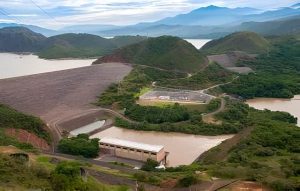Why Are Forests So Important: Exploring Nature’s Lifeline?

Why Are Forests So Important: Exploring Nature's Lifeline?
Each day, our planet is losing an increasing number of trees due to deforestation, as indicated by a recent study. But have you ever stopped to think about why are forests so important for us?
Throughout history, thriving forests have covered more than half of the Earth’s habitable land. However, human activities have been steadily depleting these forests for the past 10,000 years. In the last century alone, deforestation has escalated at an alarming rate.
Since 1900, deforestation has stripped an area equivalent to the size of the United States of its forest cover. This is the same amount that was lost in the previous 9,000 years combined, as reported by Our World in Data, an online science platform. Unfortunately, the loss of forests continues to this day.
According to a recent study conducted by the World Resources Institute (WRI) and published by Global Forest Watch, the planet lost tropical forest cover equivalent to the size of Singapore every week in 2023. That year saw a total of 3.7 million hectares (9.2 million acres) affected, marking a slight decrease compared to 2022.
Read Also: How Can Desalination Help Us Survive Water Scarcity?

The need to clear land for agriculture, especially for beef, soy, and palm oil production, as well as timber, primarily drives deforestation. Additionally, the intensification of wildfires due to climate change has also contributed to the destruction of forests. In fact, Canada experienced record-breaking fires, resulting in a fivefold increase in forest loss last year.
If deforestation continues at its current pace, it poses a significant threat to the livability of our planet for humans. While most countries have pledged to halt forest loss by 2030, they are far from achieving the necessary levels to fulfill this commitment.
Mikaela Weisse, the Director of Global Forest Watch at WRI, aptly summarized the situation by stating, “The world took two steps forward, two steps back when it comes to this past year’s forest loss.” Although countries like Colombia and Brazil have made significant strides in reducing tropical forest loss, their progress has been overshadowed by substantial increases in countries like Bolivia, Laos, and Nicaragua, as revealed by data from the University of Maryland.
Read Also: Climate change lessons in equipping kids for the future
Why are forests so important?

Healthy forests play a crucial role in maintaining the balance of our ecosystem. They help in absorbing carbon dioxide and producing oxygen, ensuring that we have clean air to breathe.
Forests also serve as natural filters for our drinking water, absorbing excess nutrients and pollutants from rainfall runoff. This helps in keeping our water sources safe and clean for consumption.
Furthermore, tree roots in forests help in preventing landslides by holding the soil together, and they aid in water absorption to combat flooding. In addition, mangrove forests act as a protective barrier during storms, buffering surges and minimizing damage.
Forests are not only essential for our physical well-being but also for our food security. They provide shelter for pollinators, support agriculture, and offer a habitat for various fruits and wild animals that we rely on for food.
Moreover, forests are a source of livelihood for millions of people around the world, providing timber, fuel, food, jobs, and shelter. They are home to more than 80% of land biodiversity, including a significant percentage of amphibians and birds.
The destruction of tropical rainforests poses a serious threat to biodiversity, with as many as 100 species going extinct each day. It is crucial to protect forests to ensure the survival of humanity and the diverse species that call these ecosystems home.
Read Also: What is climate misinformation
How are forests connected to climate change?

Forests have a vital role in the fight against climate change. According to the Intergovernmental Panel on Climate Change (IPCC), preserving forests and reforesting areas are essential in limiting global warming to under 2 degrees Celsius (3.6 Fahrenheit), as agreed upon by world leaders in Paris in 2015. Forests, oceans, and soil actively absorb large amounts of greenhouse gases, primarily emitted through the burning of fossil fuels, serving as significant carbon sinks. Clearing forests releases carbon dioxide into the atmosphere, accelerating climate change.
By halting deforestation and restoring approximately 350 million hectares of destroyed and degraded forests, we could potentially capture 5 gigatons of carbon dioxide annually. To put it into perspective, this is roughly equivalent to the annual emissions of the United States.
Moreover, forests have additional impacts on the atmosphere. They contribute to cloud formation, which helps reflect sunlight back into space. Forests also act as natural air conditioners by releasing moisture through evaporation. Even the shape of tree canopies influences wind patterns and weather systems.
A recent study discovered that forests in the eastern United States reduce temperatures by 1 to 2 degrees Celsius (1.8 to 3.6 degrees Fahrenheit) each year. This highlights the significant role forests play in regulating our climate.
Read Also: How do we fight wildfires as temperatures rise?
How can we save ?

Reversing the trend of deforestation is indeed possible. In the year 2023, Brazil managed to reduce the loss of primary forests by 36%, while Colombia witnessed a 49% decrease compared to the previous year, thanks in part to political initiatives.
Colombia’s progress in forest conservation can be largely attributed to the peace process within the country. Negotiations among various armed groups explicitly prioritized the preservation of forests.
In Brazil, President Luiz Inacio Lula da Silva has actively pursued policies aimed at combating deforestation. These measures include strengthening law enforcement, revoking environmentally harmful policies, and acknowledging the rights of indigenous territories. This stands in stark contrast to the approach taken by his predecessor, Jair Bolsonaro, whose policies contributed to the loss of forests in the pursuit of economic development.
Rod Taylor, the Global Forests Director at WRI, emphasized that countries can reduce rates of forest loss through political determination. However, he also highlighted the risk of progress being reversed when political circumstances change.
To address this fluctuation, Taylor emphasized the need for the global economy to recognize the value of standing forests compared to the short-term gains offered by clearing them for agriculture, mining, or infrastructure projects.
Read Also: How could climate-smart agriculture help Ethiopian farmers?
How can forests be protected through alternative approaches?

There are various methods to safeguard forests. One approach is through international efforts that assign a value to forests based on their carbon storage capacity. Additionally, there are emerging programs that compensate residents and landowners for their role in conserving forested areas.
To combat deforestation, regulations can target supply chains. For instance, the European Union’s recent Deforestation Regulation will compel companies to verify that their imports of cattle, cocoa, coffee, palm oil, rubber, soy, and wood products do not originate from recently deforested areas.
Supporting Indigenous communities residing in healthy forests can serve as a defense against deforestation. The World Bank reports that Indigenous territories host approximately 36% of the remaining intact forests, where they have demonstrated proficiency in preserving biodiversity.
Reforesting cleared areas will be crucial in meeting the objectives of the Paris Agreement, with some countries considering afforestation – the establishment of forests in previously non-forested regions.
According to forest expert Taylor, “a combination of bold global mechanisms and innovative local initiatives is essential to achieve lasting reductions in deforestation across tropical nations.”









3 thoughts on “Why Are Forests So Important: Exploring Nature’s Lifeline?”